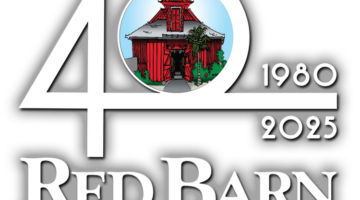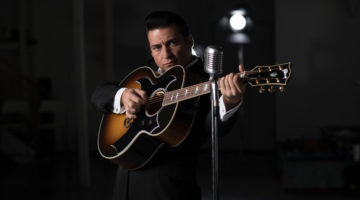News Stories / Castro Lied, Says Former CIA Expert
Brian Latell, author of “Castro’s Secrets: The CIA and the Assassination of John F. Kennedy,” is a former Central Intelligence Agency expert on Cuba who recently spent time in Key West as a guest lecturer for Friends of the Library.
In private discussions while he was here and in his latest book, Latell has offered Key Westers shocking new conclusions about what Fidel actually knew of Lee Harvey Oswald prior to the assassination of President Kennedy.
Shortly after the assassination, Castro denied that he’d ever heard of Oswald. He repeated that denial in a speech at the University of Havana just a few days later, and again in 1978 when he was interviewed by staff of the House Select Committee on Assassinations.
But, Latell cites the case of Vladimar Rodriguez Lahera, the first significant defector from Cuban foreign intelligence (known as the DGI). Lahera defected in Nova Scotia in 1964 and was debriefed by Harold Swenson, then chief of counterintelligence for the CIA’s anti-Cuban operations.
Lahera told Swenson that he knew that Oswald had visited the Cuban consulate in Mexico City, adding that before, during and after the visit, Oswald had been in contact with the DGI. (There is no indication that the CIA communicated these explosive revelations to the Warren Commission.)
While Lahera was talking with Swenson, an American named Jack Childs was in Havana, engaged in discussions with Castro. For more than 20 years, Childs and his older brother Morris had developed high-level relationships with the heads of the USSR and eastern European communist titans, as well as Ho Chi Minh and Fidel. In his May 1964 visit with Fidel, Castro told Childs that when Oswald was at the Cuban consulate in Mexico City in early October of 1963, Oswald had stormed out of the embassy, proclaiming that he was going to “kill Kennedy for this.”
On June 17, 1964, J. Edgar Hoover, head of the FBI, communicated Childs’ report to counsel for the Warren Commission but he trivialized what Childs had reported and the importance of Childs as an informer.
But perhaps the most significant report of Castro’s pre-knowledge of the assassination came from what a DGI defector named Florentino Aspillaga Lombard told Brian Latell himself.
Aspillaga had been the highest-ranking Cuban intelligence officer ever to defect to the West when he did so on the first Saturday in June 1987. (Lattel suggests that Aspillaga may have been influenced to defect by the defection just weeks earlier of General Rafael del Pino, who put his family in a Cuban jet, then hijacked the jet and flew to the Naval Air Station at Boca Chica.)
In 1963, Aspillaga had been tasked with monitoring radio transmissions from Miami and CIA headquarters in Virginia from a tiny hut in Jaimaanitas. Early in the morning of Nov. 22, he said, he received a radio instruction to go to another little hut where there was a secure phone line and to call for instructions. When he did that, he was instructed to stop all of his CIA tracking and instead to listen to radio communications from Texas and to report back if he heard anything important.
About three hours later, he heard broadcasts on amateur radio bands about the Kennedy shooting.
“Castro knew,” Aspillaga told Lattel. “They knew Kennedy would be killed.”
Shortly after he defected in June, 1987, Aspillaga also told the CIA that his father had informed him that, at the height of the Cuban missile crisis, Castro urged Russian premier Nikita Khrushchev to launch a nuclear missile attack against the United States.
Confirmation that Castro had indeed urged a Russian nuclear attack on the U.S. first came to public attention when Khrushchev’s son, Sergei, mentioned it in a January 1989 conference on the missile crisis. The Castro message was confirmed by Khrushchev in his posthumously published memoirs in which he wrote: “We received a telegram from our ambassador in Cuba [that] Castro suggested that in order to prevent our nuclear missiles in Cuba from being destroyed, we should launch a preemptive strike against the United States, [that] we needed to immediately deliver a nuclear missile strike.”
This has become known as Castro’s “Armageddon letter.” Latell writes that there has been nothing like the Castro letter “in the entire history of the nuclear age since Hiroshima and Nagasaki. No other world leader is known to have recommended the use of even a single nuclear warhead since President Truman approved the American attacks on Japan at the end of World War II. Fidel’s recommendation to Khrushchev was orders of magnitude greater. He urged a massive, surprise attack in which there could have been hundreds of nuclear explosions, all vastly more powerful than the two bombs dropped on Japan.”
[livemarket market_name="KONK Life LiveMarket" limit=3 category=“” show_signup=0 show_more=0]


No Comment